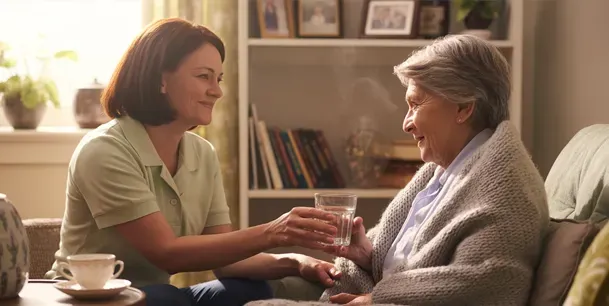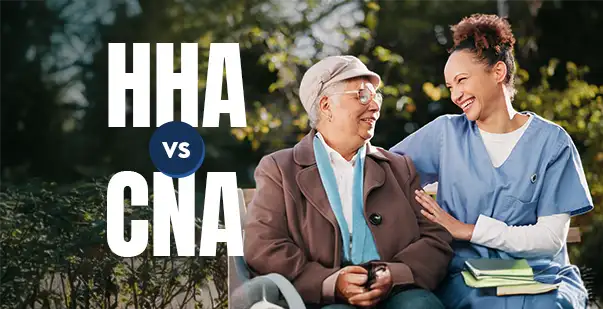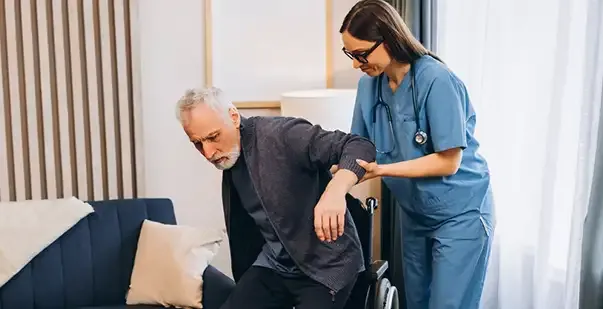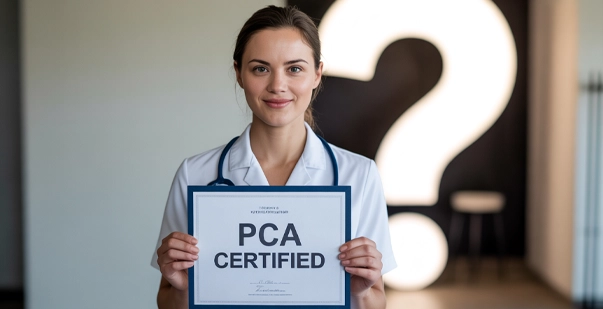Have you ever thought about a career where you could truly change someone’s life for the better? A career where your compassion and dedication help individuals maintain their dignity, independence, and quality of life? If so, becoming a Personal Care Assistant (PCA) might be the perfect path for you.
A Personal Care Assistant (PCA) plays a vital role in helping individuals maintain their independence and quality of life. Whether assisting the elderly, disabled, or recovering patients, PCAs provide essential non-medical support, such as personal care, mobility assistance, and companionship.
And here’s something incredible: Jobs for home health and personal care aides are expected to grow by a staggering 25% between 2021 and 2031! That’s according to the Bureau of Labor Statistics, making this one of the fastest-growing professions in healthcare. If you’ve ever considered a career in caregiving, now is the perfect time to get started!
But what exactly is PCA certification, and why does it matter? Read on to know more.
Read More: What To Expect From PCA Training: A Comprehensive Overview
What is PCA Certification and Why is it Important?
PCA certification is a formal qualification that verifies an individual’s ability to provide essential care services to clients who require assistance with daily living activities. Unlike Certified Nursing Assistants (CNAs), PCAs focus primarily on non-medical tasks, ensuring the comfort, hygiene, and well-being of their clients.
Certified PCAs assist clients with a range of daily activities, including bathing, dressing, grooming, and feeding. They also provide emotional support, assist with mobility, and help with light housekeeping and errands. While they do not administer medical treatments, they play a vital role in monitoring their clients’ well-being and alerting medical professionals if any health concerns arise.
PCA certification is important for ensuring caregivers meet state-mandated training and competency standards. Many healthcare facilities and home care agencies require PCAs to be certified before employment. Having certification not only increases employability but also ensures that caregivers have the necessary skills to provide high-quality assistance. Additionally, certification gives clients and their families peace of mind, knowing that their caregiver is trained and competent.
Read More: How to Get a HHA Certificate
How to Get PCA Certification: Step-by-Step Process
The process of becoming a certified PCA involves several key steps. It is important to understand your state’s requirements before beginning your training.
Step 1: Research State Requirements
Each state has its own regulations for PCA certification. Some states require specific coursework hours, while others mandate supervised clinical practice. Checking with your state’s health department or an accredited training provider ensures you meet all necessary criteria.
Step 2: Enrol in a PCA Training Program
Once you understand the requirements, enroll in a recognized PCA training program. Consider factors such as course duration, flexibility, cost, and accreditation to choose the best option for your needs.
Step 3: Complete Required Coursework
The training programs typically range from 40 to 75 hours, covering theoretical lessons and hands-on practice. Completing coursework is essential for gaining the knowledge needed to assist clients safely and effectively.
Step 4: Pass the PCA Certification Exam
Some states require candidates to take a certification exam after completing their training. The exam may include both written and practical components to test knowledge and caregiving skills.
Step 5: Apply for Certification
Once the exam is passed, candidates must apply for official PCA certification. This process may include a background check, proof of training completion, and payment of application fees.
Step 6: Start Working as a PCA
With certification in hand, individuals can apply for jobs in various healthcare settings. Many home healthcare agencies, assisted living facilities, and private clients actively seek certified PCAs to provide essential caregiving services.
Read More: Who Are Home Caregivers? All You Need To Know
Career Opportunities for PCAs
PCAs help people maintain their independence while ensuring their well-being and comfort. They can work in various healthcare settings, each offering unique opportunities and challenges. Below is a detailed look at the different career paths available for PCAs.
Home Healthcare Services
Many PCAs work in home healthcare services, providing one-on-one support to clients in their own homes. This setting is ideal for individuals who prefer a personalized and flexible work environment. PCAs help clients with daily activities such as bathing, dressing, meal preparation, and light housekeeping. Additionally, they may assist with mobility, medication reminders, and companionship to improve the client’s overall quality of life.
Hospitals and Clinics
In hospitals and outpatient clinics, PCAs assist nursing staff by attending to patients’ non-medical needs. They help ensure patient comfort by assisting with hygiene, repositioning bedridden patients, and providing emotional support. Working in a hospital or clinic allows PCAs to gain exposure to a fast-paced medical environment. This experience can be beneficial for those who want to advance their careers in healthcare, such as becoming a Certified Nursing Assistant (CNA) or pursuing nursing education. PCAs in hospitals also have the opportunity to work closely with medical professionals, learning from doctors, nurses, and therapists.
Assisted Living Facilities
PCAs in these settings support residents with personal care, mobility assistance, and social engagement activities. A key part of working in an assisted living facility is fostering a sense of community. PCAs often organize recreational activities, encourage social interactions, and help residents stay physically active. These facilities offer a structured work environment, making them a great option for PCAs who prefer working with multiple clients rather than a single individual.
Rehabilitation Centers
Rehabilitation centers focus on helping individuals recover from surgeries, injuries, or illnesses. PCAs working in these facilities provide support to patients undergoing physical or occupational therapy. Their responsibilities may include assisting with exercises, ensuring patients follow their rehabilitation routines, and helping with mobility assistance. A PCA’s role in a rehabilitation center is physically engaging, requiring them to help patients regain strength and independence. It is an excellent career choice for those who enjoy active caregiving roles and want to be part of a patient’s journey to recovery.
Palliative and Hospice Care
PCAs who work in palliative and hospice care provide support to patients with terminal illnesses. Their primary focus is on ensuring comfort, maintaining dignity, and improving the quality of life for patients during their final stages. PCAs in this field assist with personal care, pain management support, and emotional companionship. They also provide relief for family members who may need assistance in caring for their loved ones. Empathy and compassion are essential traits for PCAs in hospice care, as they must offer emotional and psychological support to both patients and their families.
What You’ll Learn in PCA Training
Enrolling in a PCA training program is the first step toward becoming a certified Personal Care Assistant (PCA). The PCA training cost varies depending on the program type and location. Online courses typically range from $100 to $500, offering flexibility for self-paced learning. In-person programs, which include hands-on training, generally cost between $300 and $1,000.
The training equips you with the knowledge and hands-on experience required to provide safe, effective, and compassionate care to clients in home healthcare, assisted living facilities, and hospitals. Core areas covered in the PCA training are:
Personal Care and Hygiene
One of the primary responsibilities of a PCA is to assist clients with daily hygiene and grooming. Training covers how to help individuals with bathing, dressing, oral care, skin care, and toileting while ensuring dignity and comfort. Proper hygiene is essential for preventing infections and maintaining overall well-being.
Mobility and Transfer Techniques
Many clients have limited mobility, requiring assistance with walking, getting in and out of bed, or using wheelchairs. PCA training includes safe transfer techniques to prevent injuries to both the caregiver and the client. You will learn how to use mobility aids such as walkers, canes, and hoists correctly.
Nutrition and Meal Preparation
A balanced diet is crucial for clients' health. PCAs are often responsible for preparing nutritious meals that meet dietary restrictions, such as low-sodium or diabetic-friendly diets. Training includes meal planning, feeding techniques, and recognizing signs of dehydration or malnutrition.
Basic Health Monitoring
While PCAs do not provide medical care, they must monitor clients' health and recognize early signs of potential issues. Training covers:
Measuring vital signs (temperature, pulse, respiration, and blood pressure)
Identifying symptoms of common conditions like dehydration, infections, or respiratory distress
Reporting health concerns to medical professionals or family members
Emergency Response and Safety
PCAs must be prepared for emergencies such as falls, choking, or sudden illness. Training includes first aid and CPR basics, fall prevention strategies, and handling medical emergencies until professional help arrives.
Communication and Emotional Support
Being a PCA involves more than just physical assistance; emotional support and effective communication are essential. Training helps PCAs develop active listening skills, empathy, and patience to build strong relationships with clients and their families.
Read More: Caretaker Vs Caregiver - Know the Differences
Start Your Rewarding Career as a Certified PCA
The career opportunities for PCAs are diverse and rewarding, offering employment in various healthcare settings. With a growing demand for skilled caregivers, PCA certification gives you the skills, confidence, and qualifications needed to thrive in this essential field.
A well-structured PCA training program ensures that you are confident, competent, and fully prepared to handle the challenges of caregiving. With the certification, you’ll be equipped to provide high-quality care while enjoying a rewarding and in-demand career in the healthcare industry.
Don’t let this opportunity pass you by! Get expert PCA training online and certification through the Caregiver Certification Program. Their flexible, high-quality courses will prepare you for success in home healthcare, assisted living, and beyond. Start your journey today and become a certified PCA!
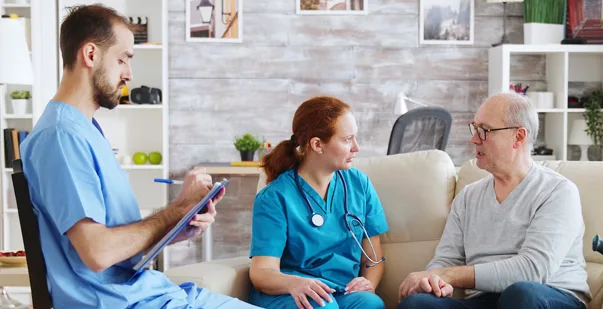
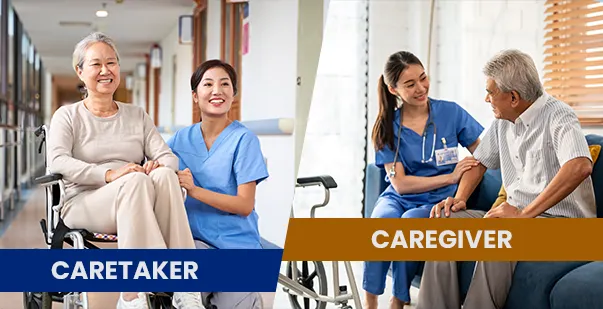
.webp)
